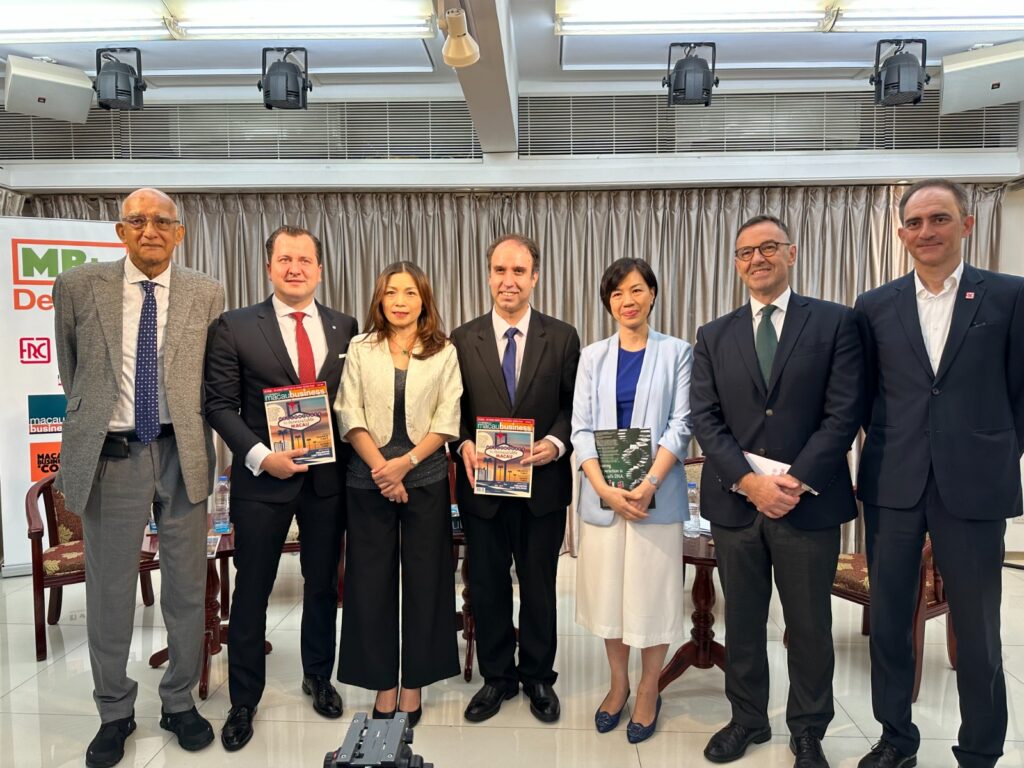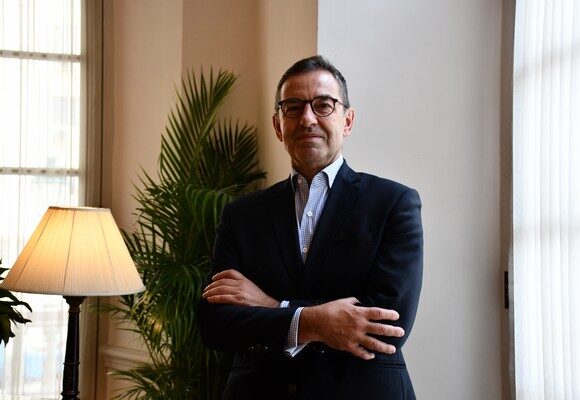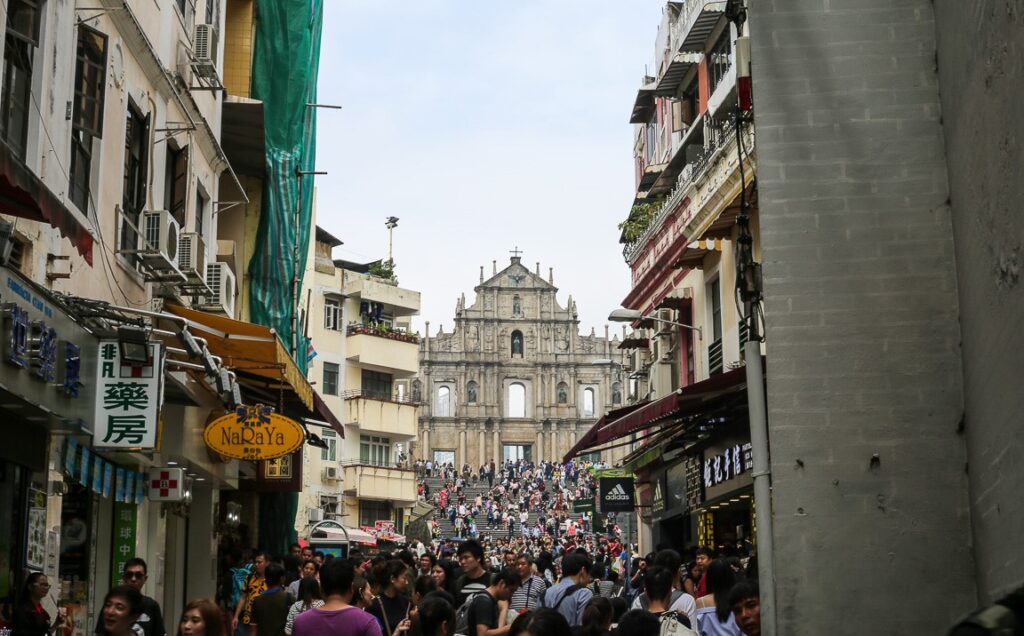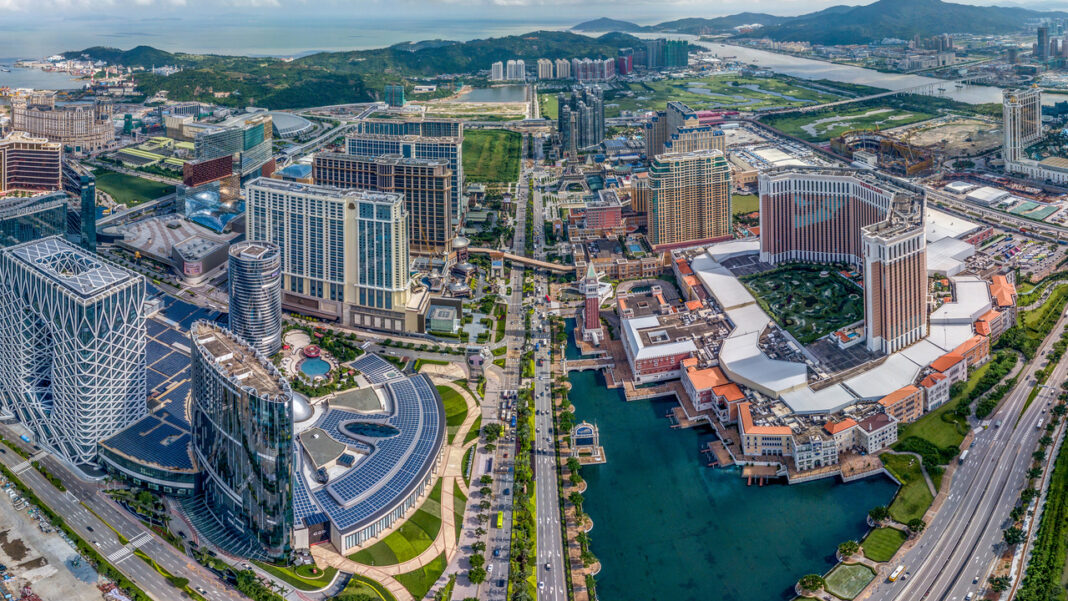A panel of experts say that Macau’s tourism industry is strongly on the rebound, but there are key factors, including labor, visitor experiences, and flight connections, which are influencing what type of consumers Macau is able to cater to properly.

In a panel organized by Macau Business, cleverly titled ‘Phoenix Rising’, hospitality and aviation experts joined an academic to pinpoint Macau’s main needs as it continues to grow this year, in particular focus: quality.

The president of the Macau Hotel Association, Luís Herédia, noted that the industry intentionally suppressed supply to make sure that its standards were up to par, and that no guests were given service below their expectations.
This has been difficult for operators though. While Macau’s labor shortage in the hospitality and gaming sector is easing, with the introduction of more non-resident workers in April, it has been a strong work of mitigation to get through the downturn.
Though operators knew that the ‘revenge tourism’ would surge, their labor stresses didn’t allow them to properly ramp up their properties, even in time for key periods such as the Golden Week holiday. Positive results during the period were legitimately driven by mainland Chinese and Hong Kong visitors.
This labor supply is all-encompassing, explains Herédia, from front-of-house, to cleaning staff and other skilled labor. While government departments have begun to pay more attention to the labor needs of operators (a historical challenge even pre-COVID), processes are still slow and inflexible.
Even non-local students of higher-education institutions and training schools who have interned with five-star, internationally-renowned, properties find it difficult to stay on, even if both themselves and the operator want to.
And the four- and five-star hotel properties, which make up some 78 percent of the room supply, or some 37,000 rooms, need as many as 50,000 non-resident workers, notes Herédia.
International guests
The whole labor supply issue dovetails the Macau government’s mandate that gaming operators increase their international clientele. And Macau’s heavy reliance on mainland Chinese patrons, requiring Chinese language skills for most hiring positions, has made its retooling for an international audience that much more difficult.
Operators are now looking to source markets for non-resident workers where non-Chinese speakers can be a boon rather than a hindrance. Markets such as the Philippines, Indonesia, Vietnam, India and even Russia are now being looked at to source employees.
But the inflexible labor policies, low quotas for hiring, and employees’ own sentiments about returning are coming into play.
This is especially important for employees who were laid off during the downturn and subsequently sought other job opportunities, oftentimes leaving Macau for better pastures.
Aviation

The employee problem spreads beyond hospitality, as the aviation industry was also affected, notes Celia Lao, Vice Chairman of the Guangdong-Hong Kong-Macau GBA Aviation Exchange Association.
Not only have workers moved on to new jobs after being let go during COVID, but they have also habituated themselves to a different working environment that is less demanding – airlines (like hotels) operate 24 hours a day/seven days a week, with employees on shift duty.
And if Macau aims to truly leverage the expansion of its airport – which is expected to take it from its current capacity of 9.6 million yearly to 15 million, then manpower, as well as space, will be required.
But Macau doesn’t yet have the practical draw to attract more long-haul carriers, as its local population is not enough to drive sustainable development.
For example, despite operating in Macau for 19 years, low-budget carrier Air Asia’s passengers are only 8 percent local. And only 8 percent of total visitors are international, but of these, some 73 percent stay overnight, with per capita expenditure some 4.5 times that of those arriving by sea or land.
One-stop multi-destination
This is all encouraging for Macau to act as an entry, or exit, point for visitors – in particular business visitors, including those that come for MICE. Leveraging the strong accessibility of Hong Kong, with needs for business visitors to go to Guangdong and potentially Hengqin, then spend a day or two in Macau for fun, could be a great way to capitalize off this segment, notes Sofitel Macau’s General Manager Vinzenz Rosa de Pauli.
But this also relies on hospitality and other tourism-related labor being able to cater to the service that guests expect.
For Chinese visitors, the guaranteed influx from outside could ensure that routes choose to ply Macau as a destination, notes Celia Lao, taking advantage of the 86 million residents of the Greater Bay Area who could use Macau as a through point to their next outbound destination.
Capacity
While Macau still hopes to get back to its ‘glory days’ of nearly 40 million tourists seen in 2019, capacity remains an issue, as Professor Penny Wan, from the Institute for Tourism Studies, notes.
And a changing profile of visitors also means that their expectations will evolve. Now, notes the academic, younger tourists are becoming the primary visitors, who travel in groups with friends – and stay for 3.5 days to 6 days.
And their focus is first on shopping, then heritage, then cuisine, and then gaming.
The younger visitors are also more interested in a photographable experience – not exactly in tune with the jam-packed Ruins of St. Paul scene that Macau was accustomed to pre-COVID.

So, Macau needs to learn how to shift these tourists around, still concentrating on iconic locations, but moving them out of the more densely populated parts of the city.
And rebranding can be key in that – pushing Macau as a “safe, joyful, accessible, city of entertainment”, including more themed hotels and focusing on heritage – with better signage and informed tour guides, that can pave the way towards an enjoyable experience for all.
Macau Business’ panel: Phoenix Rising: Making the Most of Tourism Revival was moderated by Macau Business and Macau News Agency Director José Carlos Matias. The event was hosted by the Rui Cunha Foundation.























